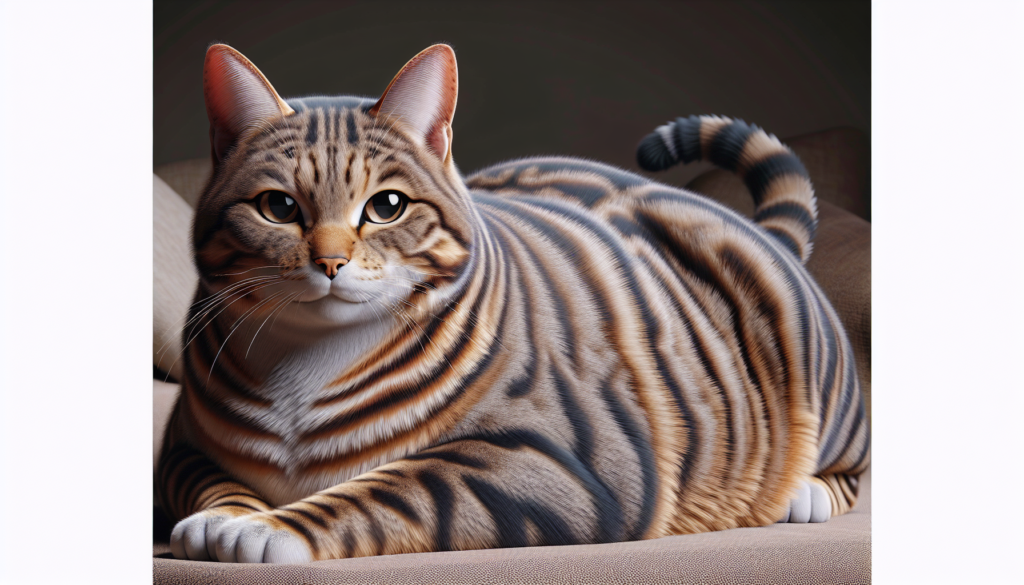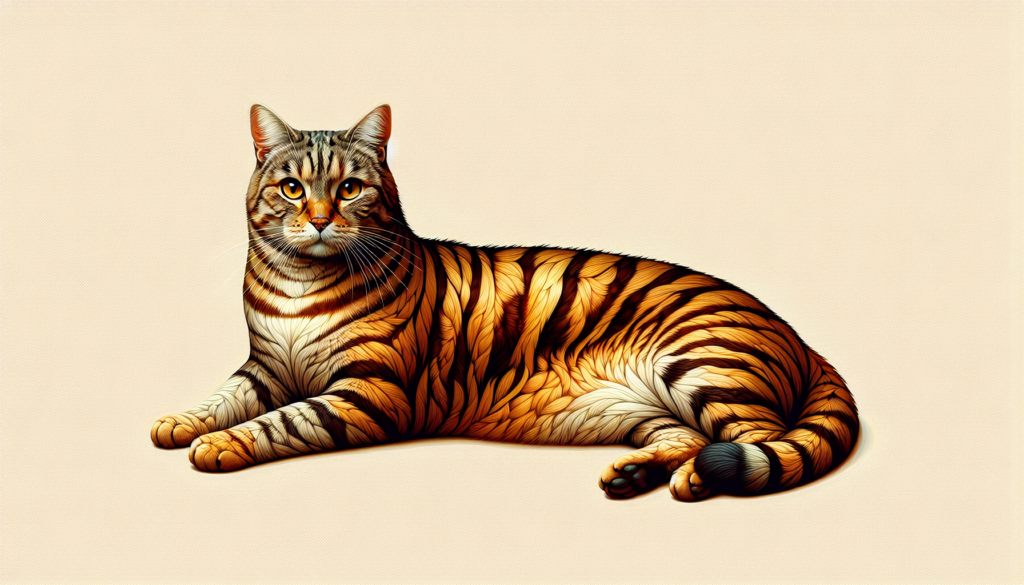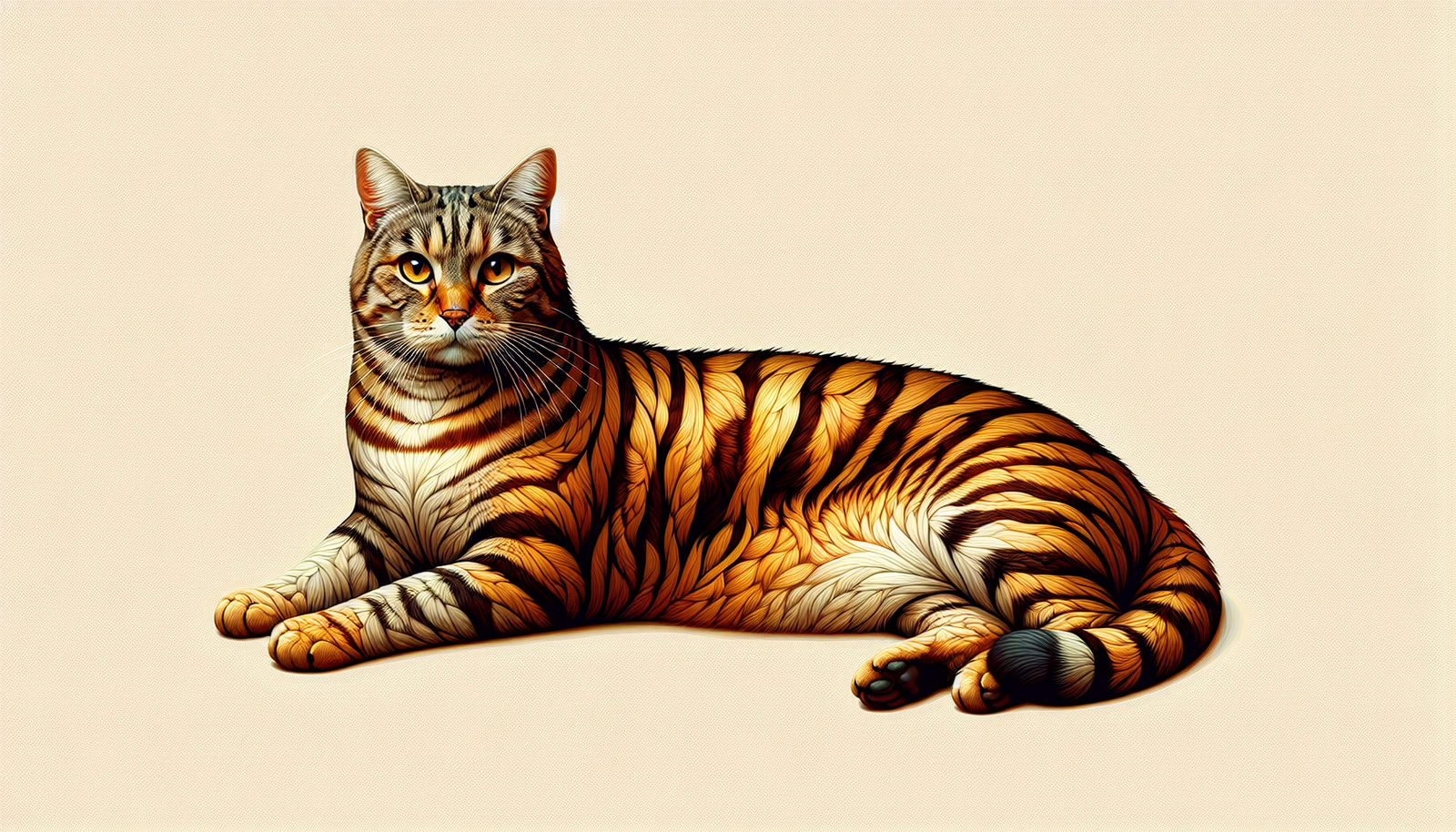Are you curious about what constitutes a healthy weight for your beloved tabby cat? Whether you’re a seasoned cat owner or considering adopting a tabby, understanding the ideal weight range is crucial for their overall well-being. In this article, we will explore the factors that determine a tabby cat’s ideal weight and provide you with essential tips to help you keep your furry friend healthy and happy. So, let’s dive into the fascinating world of tabby cats and their ideal weight range.
Understanding the Ideal Weight Range for a Tabby Cat
As a responsible pet owner, it’s important to understand the ideal weight range for your tabby cat. Tabby cats come in various sizes and shapes, and their weight can greatly affect their overall health and well-being. By maintaining a healthy weight, you can ensure that your beloved feline friend leads a long and happy life.

Factors Affecting a Tabby Cat’s Weight
Several factors can influence a tabby cat’s weight. The first factor to consider is their body condition score (BCS). BCS is a visual and tactile assessment of your cat’s body fat distribution and muscle mass. Another important factor is their breed-specific considerations, as different breeds may have different ideal weight ranges. Gender also plays a role, as male and female tabby cats may have slightly different weight tendencies. Additionally, age-related weight changes are common among cats, and monitoring weight throughout their life stages is crucial.
Determining the Body Condition Score
Understanding your tabby cat’s body condition score is key to assessing their weight. A body condition score of 1 indicates emaciation, while a score of 5 represents obesity. Ideally, your cat should have a body condition score of 3, with ribs easily felt and a visible waistline when viewed from above. By examining your cat’s body shape, feeling for fat deposits, and consulting with your veterinarian, you can determine their body condition score accurately.
The Importance of Maintaining a Healthy Weight
Maintaining a healthy weight is essential for your tabby cat’s overall well-being. A cat that is underweight may experience a weakened immune system, decreased energy levels, and a higher risk of developing certain medical conditions. Conversely, an overweight or obese cat is prone to a range of health problems, including diabetes, arthritis, heart disease, and a reduced lifespan. Striving for a healthy weight range will help your tabby cat live a happier and more fulfilling life.
Dangers of Being Underweight
While it’s crucial to avoid obesity in cats, being underweight can also pose significant dangers. If your tabby cat is underweight, it may indicate an underlying health issue, such as a parasite infestation or a gastrointestinal problem. Being underweight can weaken their immune system, making them more susceptible to infections and diseases. It’s important to take prompt action if you notice your cat losing weight unexpectedly and consult with a veterinarian to address any potential issues.

Health Risks of Being Overweight
Obesity is a prevalent issue among cats, and tabby cats are no exception. Carrying excess weight can lead to serious health risks in cats. Conditions such as diabetes mellitus, respiratory problems, high blood pressure, and joint issues are more common among overweight cats. Additionally, obese cats may struggle with grooming difficulties and a reduced ability to engage in physical activities. Regular monitoring and maintaining a healthy weight can help prevent these health risks.
Breed-Specific Considerations
When determining the ideal weight range for your tabby cat, it’s important to consider breed-specific considerations. Different breeds have variations in size and body composition. For example, Maine Coon tabby cats tend to be larger and may have a higher ideal weight range compared to a domestic short-haired tabby. Familiarize yourself with your cat’s breed standards or consult with a veterinarian to determine the appropriate weight range for your tabby cat’s specific breed.
Gender Differences in Weight
Gender can also influence a tabby cat’s weight. Male tabby cats typically have a larger body size and tend to be heavier than their female counterparts. However, it’s crucial to remember that each cat is unique, and weight can vary among individuals. Regular monitoring and maintaining a healthy weight, regardless of gender, is key to their overall health and longevity.
Age-Related Weight Changes
As tabby cats age, they may experience changes in weight. Kittens require more calories to support their growth, while older cats may have a slower metabolism, leading to potential weight gain. It’s important to adjust their diet and monitor their weight as they transition through life stages. Regular veterinarian check-ups can help ensure that your cat’s nutritional needs align with their age, preventing obesity or unintentional weight loss.
How to Monitor a Tabby Cat’s Weight
Monitoring your tabby cat’s weight is essential for maintaining their overall health. You can do this by routinely weighing them on a pet scale or by monitoring their body condition score. Keeping track of their weight over time will help identify any abnormal fluctuations. Should you notice unexplained weight gain or loss, consult with a veterinarian to rule out any underlying health issues.
Tips for Maintaining an Ideal Weight Range
To maintain your tabby cat’s ideal weight range, there are a few tips you can follow. Firstly, ensure they are on a balanced and appropriate diet for their age, breed, and activity level. Providing them with regular exercise and playtime will help burn excess calories and keep them fit. Avoid overfeeding or free-feeding, as it can lead to weight gain. Lastly, establish a routine of regular veterinary check-ups to address any weight-related concerns and ensure your cat’s continued good health.
In conclusion, understanding and maintaining the ideal weight range for your tabby cat is crucial for their overall well-being. By considering factors such as body condition score, breed-specific considerations, gender differences, and age-related weight changes, you can help your tabby cat live a long and healthy life. Regular monitoring, a balanced diet, exercise, and veterinary care will all play vital roles in ensuring your beloved feline companion maintains a healthy weight and thrives.

